RIKEN Hakubi Fellows Program
Description of program
In the Hakubi Fellows Program, RIKEN offers junior PI positions for independent research by exceptionally talented individuals. The program, established in 2017, encourages active exchange between the fellows, and seeks to develop the next generation of leading researchers with a global outlook.
As of FY2023, thirteen RIKEN Hakubi team leaders have been appointed and are now actively working at RIKEN. RIKEN has expanded the RIKEN Hakubi Fellows Program and started a new program, the RIKEN Early Career Leaders (ECL) Program.
The RIKEN Hakubi Fellows Program will not offer positions from FY2024.
Term
Maximum term of 7 years
Individuals taking prenatal, postnatal or childcare leave may extend their terms commensurate to the period they take for their leave, as provided in RIKEN regulations.
Research budget
10 to 40 million JPY per year, depending on research plan
(RIKEN’s facilities and equipment are available for use)
Salary
910,000 JPY per month, based on an annual salary (social security and tax are deducted from salary), other allowances available
Features
Research fields
All areas of the natural sciences, including the mathematical sciences; research in boundary areas with the humanities and social sciences. Research topics with the potential for high impact scientifically or socially, including unexplored areas, and research on issues humanity currently faces, are welcome.
Location of research team
Teams may be located on RIKEN’s Wako Campus, and other RIKEN campuses when necessary
Networking
Active exchange encouraged between fellows
Regular meetings with RIKEN president
Sechi Kato Program for RIKEN Hakubi Fellows Program
The Sechi Kato Program was established in FY 2018 with the aim of fostering promising female researchers with a global outlook and spirit of inquiry so that they can play a great role and lead other female researchers on the global arena. The program name is associated with a pioneering female scientist, Sechi Kato (1893-1989) who, in the field of chemical analysis, contributed to fostering female researchers in Japan, and was the first female Chief Scientist of RIKEN. For more information, please see ”Expand creativity and explore the future of science / Sechi Kato Program / Fostering of young women research leaders.”
RIKEN Hakubi team leaders
Bartosz Regula

Name of laboratory
RIKEN Pioneering Research Institute, Mathematical Quantum Information RIKEN Hakubi Research Team
RIKEN Center for Quantum Computing, Mathematical Quantum Information RIKEN Hakubi Research Team
Research topic
Foundations of quantum resources: mathematical theory for the structure and applications of quantum phenomena
Self-introduction
Quantum information science promises to allow for the development of practical communication and computation tools that can surpass all classical technologies. Such advantages are possible because quantum theory possesses a very rich and complex structure, and some unique properties of quantum systems — such as superposition or entanglement — can be used to improve our ability to manipulate information. However, this richer structure also brings a number of challenges. Notably, a comprehensive understanding of quantum information is much more difficult than in the classical case, as the underlying mathematical problems become more complicated. My research at RIKEN is concerned precisely with how to unravel the complexities of the mathematical foundations of quantum theory. The goal is to improve our understanding of quantum phenomena, as well as to develop new tools that can simplify the description of various quantum resources and help us gain an advantage in the processing of information. (Starting date: April 1, 2023)
Tomotaka Kuwahara
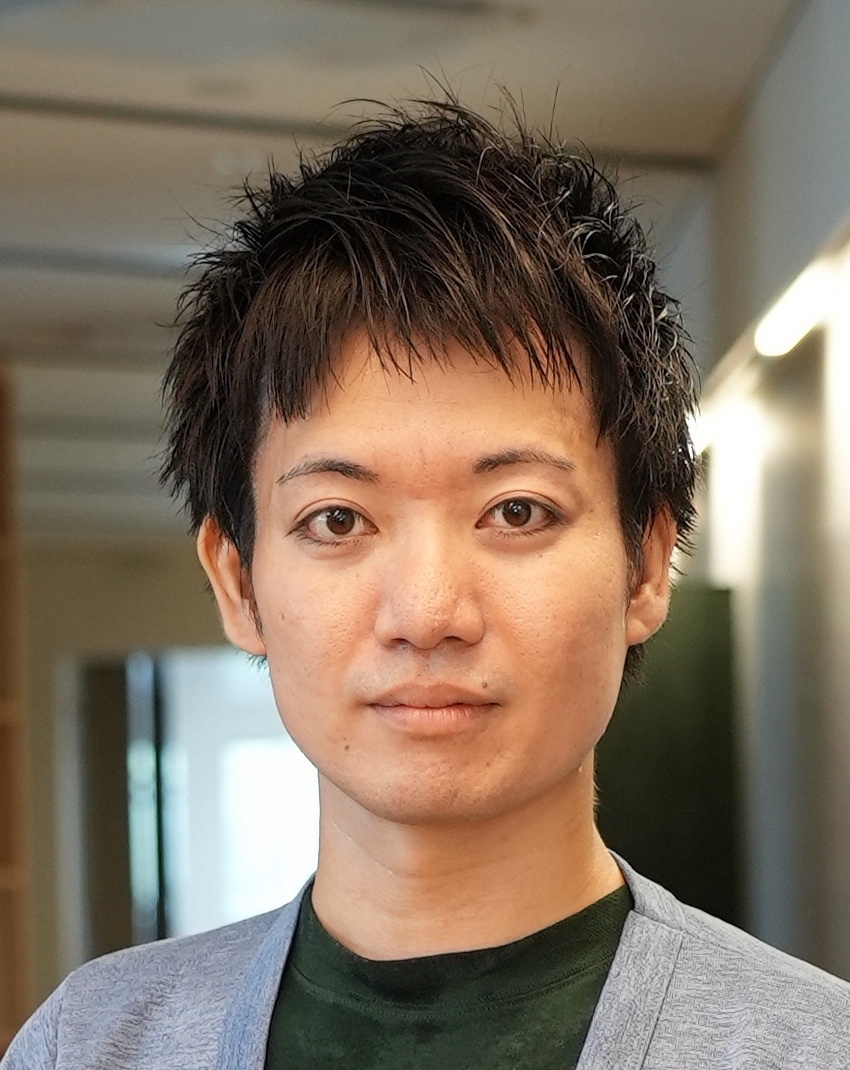
Name of laboratory
RIKEN Pioneering Research Institute, Analytical Quantum Complexity RIKEN Hakubi Research Team
RIKEN Center for Quantum Computing, Analytical Quantum Complexity RIKEN Hakubi Research Team
Research topic
Exponential speedup in quantum computing based on quantum many-body theory
Self-introduction
Our living world is made up of many atoms that obey simple laws. The complex structure of the world is created by the influence of each particle on the others. Quantum many-body theory is an academic field that deals with phenomena involving many particles that obey quantum mechanics.
Then, how complex is the structure of this world in terms of information theory? So far, experiments and numerical calculations have proposed various "candidates for universal laws" as conjectures. They can be written down in a mathematically beautiful and simple form, but proving them mathematically correct is no mean feat. I aim to unravel these long-unsolved and unassailable conjectures and apply the knowledge gained from them to the speed-up of quantum computers. (Starting date: April 1, 2022)
Terufumi Fujiwara

Name of laboratory
RIKEN Pioneering Research Institute, Adaptive Motor Control RIKEN Hakubi Research Team
RIKEN Center for Brain Science, Adaptive Motor Control RIKEN Hakubi Research Team
Research topic
Neural mechanisms of adaptive motor control
Self-introduction
Imagine how effortlessly we reach an arm to grab a cup. Because the cup’s shape/location and our body’s condition are never identical, this seemingly simple motor task requires a sophisticated brain computation. Fine motor control is necessary even for small insects to survive in a complex environment. Using its compact brain, the insect elegantly coordinates the body, head, legs, and wings to navigate and interact with the world. Recent works in the fruit fly, a genetic insect model, have made it possible to mechanistically dissect the single-cell level brain circuit map and function. By leveraging these advanced tools and my original behavioral paradigms, I will reveal neural mechanisms of adaptive motor control in flies, which may provide ground-breaking insights into the universal principles across animal species.
Related link
Fujiwara Lab, Adaptive Motor Control RIKEN Hakubi Research Team
Masako Tamaki
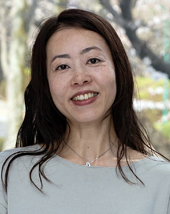
Name of laboratory
RIKEN Pioneering Research Institute, Cognitive Somnology RIKEN Hakubi Research Team
RIKEN Center for Brain Science, Cognitive Somnology RIKEN Hakubi Research Team
Research topic
Elucidation of the role of the sleeping brain in human cognition and behavior
Self-introduction
Why do you think and behave the way you do? For example, one day you may abruptly decide to get a cup of tea instead of coffee, or you may come up with a brilliant idea. Accumulating behavioral evidence suggests that the sleeping brain plays a critical role in our thoughts and actions. However, little is known about the ways the sleeping brain accomplishes this work. As a Hakubi Team leader I would like to develop and integrate various neuroimaging, physiological, and psychophysical techniques to elucidate the fundamental role of the sleeping brain in human cognition and behavior. (Starting date: April 1, 2021)
Related link
Yuya Morimoto
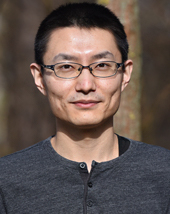
Name of laboratory
RIKEN Pioneering Research Institute, Ultrashort Electron Beam Science RIKEN Hakubi Research Team
RIKEN Center for Advanced Photonics, Ultrashort Electron Beam Science RIKEN Hakubi Research Team
Research topic
Ultrafast imaging and coherent reaction control with shaped electron pulses
Self-introduction
Directly visualizing motion of atoms and electrons during physical and chemical reactions is one of my research goals. To this end, I have been working on experiments using ultrashort electron and laser beams and developed a method to control the temporal shape of electron beams with attosecond resolution (1 attosecond = one quintillionth of a second). At RIKEN, I will develop novel electron imaging devices for capturing ultrafast electron dynamics in materials and for controlling electron-atom collisions at attosecond timescales. By using the cutting-edge electron-beam technology, I will investigate fundamental chemical and physical processes at an atomic scale together with the attosecond time resolution. (Starting date: October 2021)
Related link
Ryusuke Hamazaki
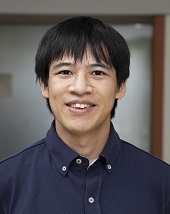
Name of laboratory
RIKEN Pioneering Research Institute, Nonequilibrium Quantum Statistical Mechanics RIKEN Hakubi Research Team
Research topic
Understanding and controlling macroscopic nonequilibrium phenomena via microscopic quantum theory
Self-introduction
Bridging macroscopic nonequilibrium phenomena and microscopic theory of (quantum) mechanics is presumably one of the most profound problems in physics. As a theoretical physicist, I have mainly worked on how quantum systems isolated from the environment relax to thermal equilibrium under unitary time evolution. I am now interested in understanding and controlling richer nonequilibrium dynamics emergent in isolated or dissipative quantum many-body systems. Through nonequilibrium science, I would also like to contribute to interdisciplinary researches, such as biology and information theory as well as condensed matter theory. (Starting date: April 1, 2020)
Related link
Nonequilibrium Quantum Statistical Mechanics RIKEN Hakubi Research Team
Erika Kawakami
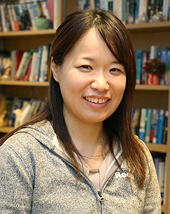
Name of laboratory
RIKEN Pioneering Research Institute, Floating-Electron-Based Quantum Information RIKEN Hakubi Research Team
RIKEN Center for Quantum Computing, Floating-Electron-Based Quantum Information RIKEN Hakubi Research Team
Research topic
Quantum computation and quantum simulation using electrons on helium
Self-introduction
I have been fascinated by how physics describes the world since I was a high school student. There are some laws of physics that appear to be inconsistent with how we make sense of the universe in our daily life, but do, in fact, explain the world amazingly well. In quantum mechanics, an object can possess a superposition of two states and states change due to measurement. Whenever I encounter experimental results that can be explained by nothing but this weird aspect of quantum mechanics, it always reminds me of how unreliable my sense of the universe is and how important it is to think and act scientifically. I would like to create new technology that can enrich our society by making use of this weird aspect of quantum mechanics. That is why I am working towards the realization of a quantum computer. (Starting date: September 1, 2020)
Related link
Floating-Electron-Based Quantum Information RIKEN Hakubi Research Team webpage
Masaya Hagiwara
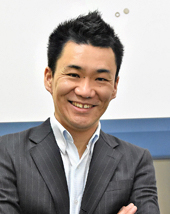
Name of laboratory
RIKEN Pioneering Research Institute, Human Biomimetic System RIKEN Hakubi Research Team
RIKEN Center for Biosystems Dynamics Research, Human Biomimetic System RIKEN Hakubi Research Team
Research topic
Controlling self-organized pattern formation by spatio-temporal control of culture environments
Self-introduction
The overall objective of my research is the development of in-vitro experimental platform to reconstitute the biological system outside our bodies by controlling cellular micro-environments. Especially lung airway is the one of my major targets. The scientific question is how the airway cells can organize such a sophisticated structure by themselves. The repetitive feedbacks between in-vitro experiments and mathematical model give us a tremendous amount of useful information, and I am challenging to unveil the system underlying self-organization of tissue formation by directing complex tissue structure. Development of Organ or Body-on-a-Chip system is another research target for the animal testing alternative. I would like to cross the border of research fields to tackle what I am interested in. (Starting date: April 1, 2019)
Asuka Takeishi (From July 2019 - March 2025)
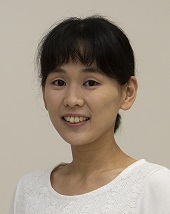
Name of laboratory
RIKEN Cluster for Pioneering Research, Neural Circuit of Multisensory Integration RIKEN Hakubi Research Team
RIKEN Center for Brain Science, Neural Circuit of Multisensory Integration RIKEN Hakubi Research Team
Research topic
Neural and molecular bases of multi-stimuli processing
Self-introduction
I am interested in how animals make behavioral decisions. Animals are exposed to continuously changing environmental stimuli, such as temperature, odor, light and sound. We sense and integrate these environmental cues in the nervous system in order to choose appropriate behavioral responses. I am studying the neural and molecular mechanisms of thermotaxis using C. elegans and its relatively simple nervous system. At RIKEN, I will investigate the mechanism of multi-sensory integration in the nervous system by analyzing behavior strategies and neural circuits of C. elegans that are exposed to multiple stimuli. In addition to this biological approach, I’d like to incorporate mathematical and computational models to reveal the evolutionally-conserved fundamental mechanism of behavioral decision.
Kyogo Kawaguchi (From September 2018 - March 2025)
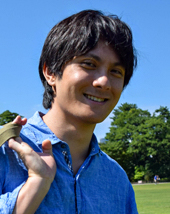
Name of laboratory
RIKEN Cluster for Pioneering Research, Nonequilibrium Physics of Living Matter RIKEN Hakubi Research Team
RIKEN Center for Biosystems Dynamics Research, Nonequilibrium Physics of Living Matter RIKEN Hakubi Research Team
Research topic
Nonequilibrium statistical mechanics of stochastic fate choices and collective migration in cultured stem cell pools
Self-introduction
Trained as a theoretical physicist, I started conducting biology experiments during my PhD studies, and am now interested in addressing themes of biology through concepts of theory and simple experiments. My motivation is based on the seemingly huge gap between the fascinating progress made in bio-experiments and the fundamental questions that remain unanswered in biology. I am currently most curious about the underlying mechanism of cell fate commitment, and I wish to find universal rules in multicellular dynamics in development and homeostasis. Through this program, I am hoping to develop interdisciplinary approaches for understanding living systems.
Related link
Hirofumi Shintaku (From April 2018 - March 2025)
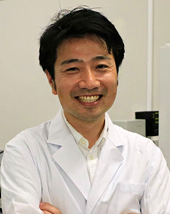
Name of laboratory
RIKEN Cluster for Pioneering Research, Microfluidics RIKEN Hakubi Research Team
Research topic
Microelectrokinetic tools for sequencing at sub-cellular resolution
Self-introduction
I actively study problems involving fluid dynamics and transport phenomena in micro/nano confined spaces. The problems are inspired by microfluidic systems for biochemical analysis and cellular engineering. We are especially interested in electrokinetic phenomena, e.g., electrophoresis, electroosmotic flow, and electrowetting of complex fluids including cells and biomacromolecules. I recently developed a microfluidic system that enables the high-throughput sequencing of cytoplasmic and nuclear RNA with the physical fractionation of the RNA species via electrical lysis and isotachophoresis. I leverage this system to uncover the regulation of gene expression involving RNA localization and transport in single cells.
Related link
Teruaki Enoto (From January 2020 - October 2024)
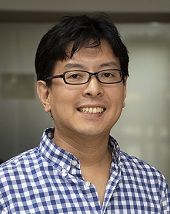
Name of laboratory
RIKEN Cluster for Pioneering Research, Extreme Natural Phenomena RIKEN Hakubi Research Team
Research topic
Collective power of science: Detector network for high-Energy atmospheric physics and beyond
Self-introduction
Extreme natural phenomena are unexplored frontiers of science. I have been studying X-ray astrophysics of neutron stars, which are the most extreme (strongest) magnets in the Universe. Applying my expertise of astronomical radiation measurement techniques, I started a new project to study high energy radiations from terrestrial lightning and thunderstorms, namely extreme natural phenomena on the Earth. Our newly deployed multi-point observation network monitors winter lightning and thunderstorms in the coastal area along the Sea of Japan. This project is opening a new interdisciplinary field, that is high-energy atmospheric physics, where we are aiming at solving the mystery about elusive photonuclear reactions triggered at lightning, and more. The slogan of the project is “collective power of science”. It expresses our scientific methodology of using multiple-detector network instead of a single huge detector, and also implies a novel way of scientific collaboration not limited within researchers but also with citizen supporters by means of academic crowdfunding and open-science publicity. Furthermore, I would like to extend this concept to space science, launching a fleet of CubeSats to perform scalable X-ray astronomical observations for gravitational-wave astronomy and exoplanet science.
Related link
Nicholas Parrish (From August 2018 - June 2024)
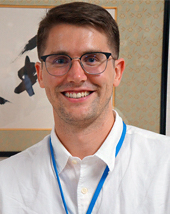
Name of laboratory
RIKEN Cluster for Pioneering Research, Genome Immunobiology RIKEN Hakubi Research Team
RIKEN Center for Integrative Medical Sciences, Genome Immunobiology RIKEN Hakubi Research Team
Research topic
Immunobiology of endogenous viral elements in mammals
Self-introduction
I am interested in the interactions between an organism’s genome and its viruses, especially how “self,” in the immunological sense, is established at the genome level. As a medical doctor with training in surgery, I am seeking new understanding that could enable practical innovations in preventing and treating virus infections and allowing tolerance to specific “non-self,” for example transplanted organs. My colleagues and I found that viral sequences present in some organism’s genomes can generate small RNAs called piRNAs. My team will test the hypothesis that this enables RNA interference to prevent or ameliorate virus infection. I am honored to join the first group of Hakubi team leaders at RIKEN and the Center for Integrative Medical Sciences, organizations with rich histories and exciting visions for the future. Having loved living in Kyoto in 2014, I look forward to moving back to Japan and exploring the Kanto area with my wife, Erica.
Contact
Research Personnel Development Section, Human Resources Strategy Division, Human Resources Group, RIKEN
Email: hakubi@riken.jp
